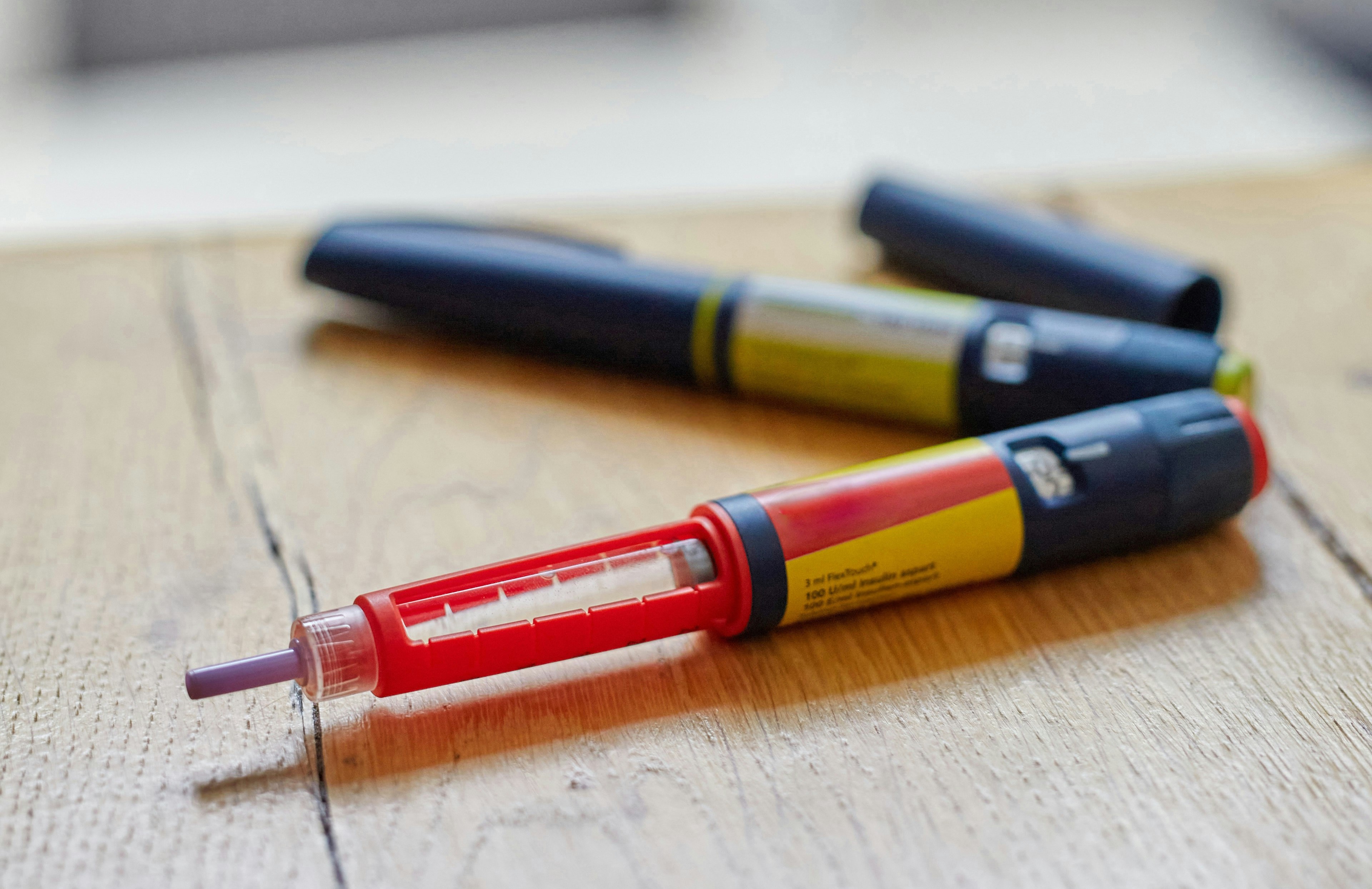Published October 1, 2025

Written by Kara Jensen, PharmD, BCPS; 2025-2026 ISMP Safe Medication Management Fellow, supported by the US Army
Some medicines need to be given as an injection to treat certain health conditions. For example, people who have diabetes may need to give themselves an insulin injection multiple times each day to keep their blood sugar (glucose) in control. This is because their bodies either do not produce enough insulin or do not use insulin effectively.
Insulin pens, and other medicines that come in pen injector devices that require attaching a needle, offer a convenient way to deliver these medications. The pens require the use of a small, disposable needle that is changed prior to each injection. However, the temptation to reuse these needles can arise if prescriptions do not provide enough needles, or if cost is a concern. It is important to understand that even though it might seem harmless, reusing needles carries significant health risks. Reusing needles, even once, increases the risk of several problems.
First, needles are designed to be sharp and sterile, and only used once. Each time you reuse a needle, it becomes duller, making injections more painful. The silicone coating that helps the needle slide in smoothly wears off, causing more friction and potential damage to your skin. Like writing with a dull pencil, using a dull needle takes more force and does not work well.
More seriously, reusing needles can lead to infections. Even if it is your needle, it can still pick up bacteria, increasing the risk of infection at the injection site.
A reused needle can also become bent or damaged. In rare cases, it can even break off and remain in your body, requiring surgery to remove it. One case described a patient who needed surgery to remove a pen needle that had broken off and lodged in his arm muscle after being reused four times. This case highlights the real risk of complications from reusing needles.1
Reusing needles can also affect the accuracy of your medicine dose. It's like trying to drink through a straw that is starting to get clogged. Reused needles may have tiny blockages that affect how much medicine you get. For example, if you are reusing the same needle to give yourself insulin, it can impact your long-term blood sugar control.
Here’s what you can do: Given the potential dangers of reusing needles, it is important to understand the risks. If your doctor prescribes a medicine that uses a pen device, ask your doctor or nurse about the medicine and how to take it.
When picking up the medicine, ask to speak to the pharmacist. Open the package in front of the pharmacist to look at the pen device. Ask the pharmacist if pen needles come with the device. If pen needles are not included, ask the pharmacist to provide you with an adequate supply of needles. The pharmacist can contact your doctor if a prescription is needed. Ask the pharmacist to show you how to use the device. And then demonstrate back to the pharmacist by showing them how you will attach the needle, administer the medicine, and remove and dispose of the used needle.
Do not share pen injectors with friends or other family members, even when the needle has been changed. Never reuse a needle. They are for single use only. Do not place loose needles and other sharps in household or public trash cans or recycling bins. Never flush needles or other sharps down the toilet. Place used needles immediately into a sharps disposal container. Dispose of the sharps container according to your community waste guidelines.
If cost is a concern, be prepared to discuss your needle needs with your doctor or pharmacist and explore available assistance programs. Remember, your health and safety are worth it. Choosing to use a fresh needle for each injection is always the safer option.
Reference